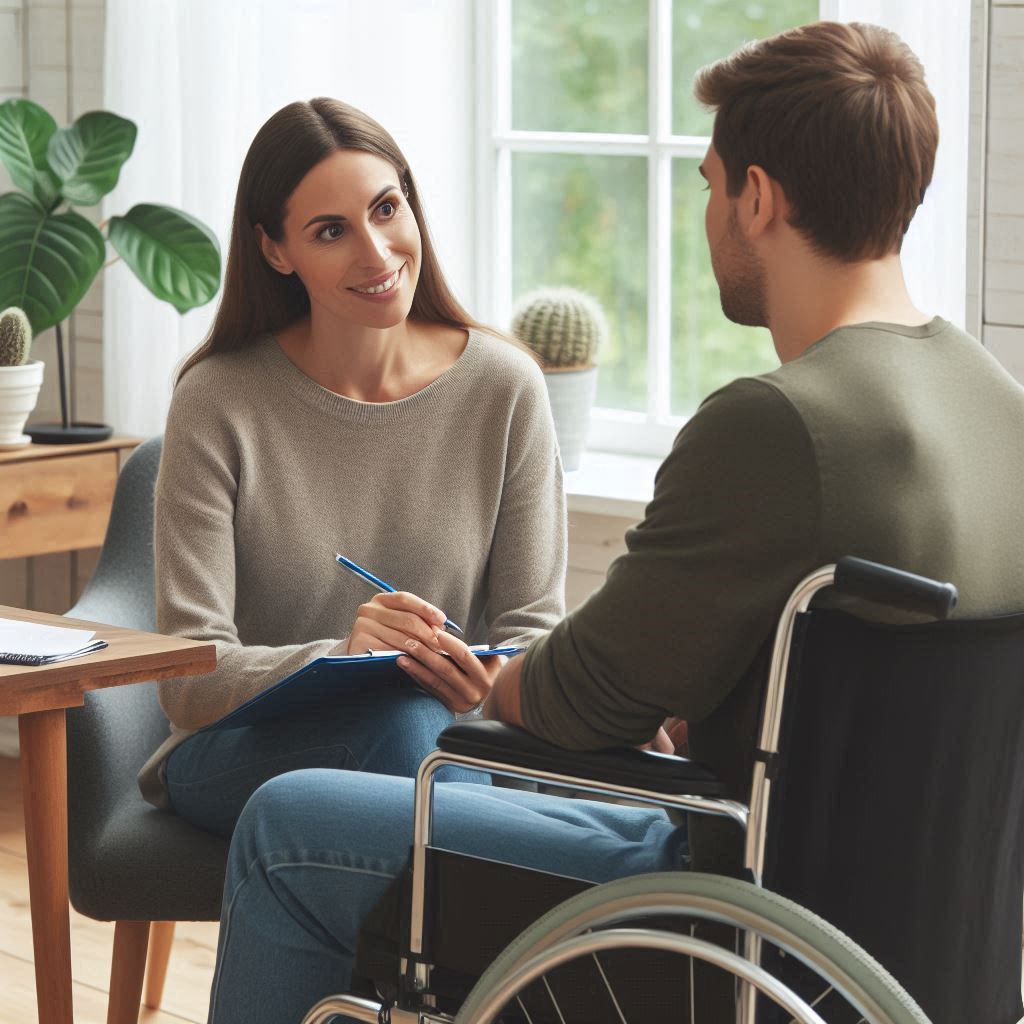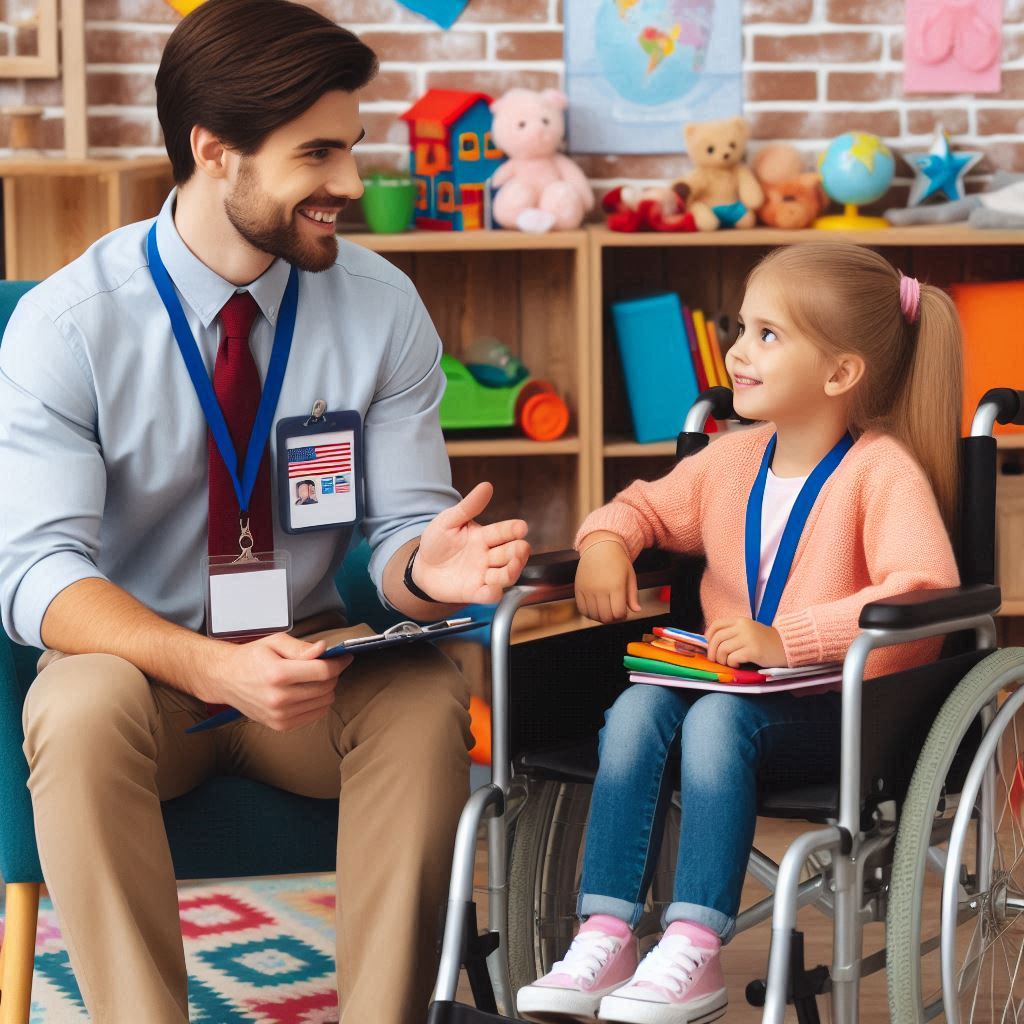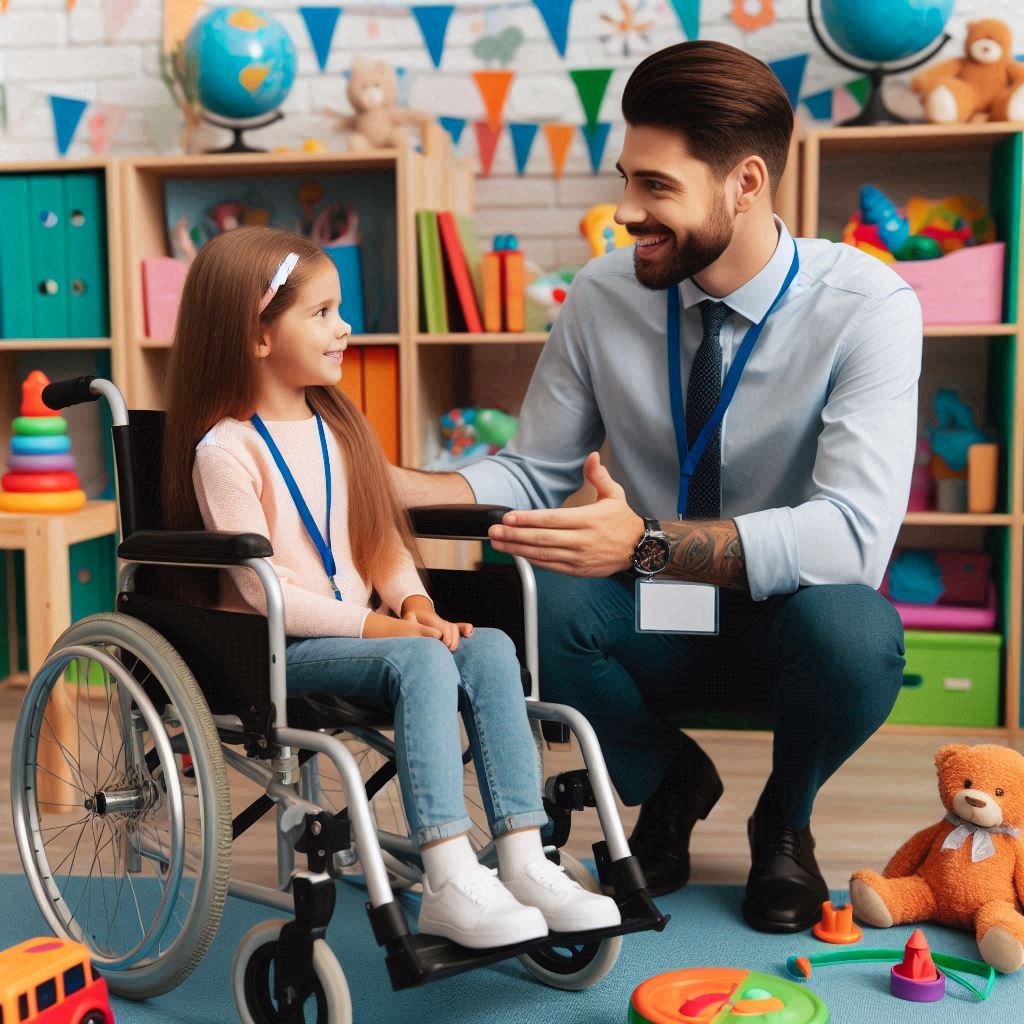Introduction
Rehabilitation counseling is a specialized field that helps individuals with disabilities achieve their personal, social, and vocational goals.
These counselors provide support, guidance, and resources to help their clients lead independent and fulfilling lives.
Brief explanation of rehabilitation counseling
Rehabilitation counselors work with clients to identify their strengths, needs, and goals.
They develop individualized plans to help clients overcome barriers and achieve their objectives.
These professionals also provide counseling, advocacy, and coordination of services to support their clients’ overall well-being.
Importance of essential skills for rehabilitation counselors
Essential skills are crucial for rehabilitation counselors to effectively support their clients and facilitate positive outcomes.
Skills such as empathy, active listening, and effective communication are essential for building trust and rapport with clients.
Counselors must also possess strong problem-solving, critical thinking, and decision-making skills to address complex issues and develop practical solutions.
Additionally, cultural competence and sensitivity are essential for understanding and respecting clients’ diverse backgrounds and experiences.
Overall, possessing these essential skills enables rehabilitation counselors to empower their clients, promote independence and self-advocacy, and contribute to their overall well-being and success.
Understanding of Different Disabilities
One of the essential skills for rehabilitation counselors is having a deep understanding of different disabilities.
Knowledge of Various Disabilities and their Impact on Individuals
Rehabilitation counselors must be well-versed in various disabilities, including physical, mental, and emotional conditions.
Understanding the unique characteristics of each disability helps counselors provide effective support and guidance to individuals facing challenges.
Physical Disabilities
Individuals with physical disabilities may face limitations in mobility, coordination, or sensory functions.
These disabilities can result from conditions such as spinal cord injuries, amputations, or musculoskeletal disorders.
Rehabilitation counselors need to understand the physical barriers that individuals with these disabilities may encounter and provide resources to help them overcome challenges.
Mental Health Disorders
Mental health disorders, such as depression, anxiety, bipolar disorder, and schizophrenia, can significantly impact an individual’s emotional well-being and daily functioning.
Rehabilitation counselors must have knowledge of these conditions to support individuals in managing symptoms, accessing treatment, and developing coping strategies.
Cognitive Disabilities
Cognitive disabilities, such as intellectual disabilities, learning disorders, and developmental delays, can affect an individual’s ability to process information, communicate effectively, or perform daily tasks.
Rehabilitation counselors should tailor their support to accommodate the unique learning styles and communication needs of individuals with cognitive disabilities.
Ability to Provide Tailored Support and Guidance Based on Specific Disabilities
Rehabilitation counselors play a crucial role in providing personalized support to individuals with disabilities.
By understanding the specific challenges and needs associated with each disability, counselors can develop customized strategies to help individuals achieve their goals and enhance their quality of life.
Individualized Treatment Plans
Rehabilitation counselors work with individuals to create individualized treatment plans that address their unique needs and goals.
By tailoring interventions based on specific disabilities, counselors can help individuals build skills, increase independence, and improve their overall well-being.
Collaboration with Multidisciplinary Teams
Rehabilitation counselors collaborate with a diverse range of professionals, including physicians, psychologists, occupational therapists, and social workers, to provide comprehensive support to individuals with disabilities.
By working as part of a multidisciplinary team, counselors can ensure that individuals receive holistic and integrated care that addresses all aspects of their well-being.
Advocacy and Empowerment
Rehabilitation counselors advocate for the rights and needs of individuals with disabilities in various settings, including schools, workplaces, and communities.
By empowering individuals to self-advocate and access resources, counselors help individuals become active participants in their own rehabilitation process and achieve greater independence.
In short, having a strong understanding of different disabilities and the ability to provide tailored support and guidance based on specific disabilities are essential skills for rehabilitation counselors.
By applying these skills, counselors can make a meaningful difference in the lives of individuals with disabilities and help them overcome challenges to reach their full potential.
Read: Ultrasound Technician vs. Radiologic Technologist
Communication Skills
Communication skills are essential for rehabilitation counselors to effectively interact with clients, colleagues, and other professionals in the field.
Effective Communication
Rehabilitation counselors must be able to convey information clearly and concisely to clients to ensure they understand the rehabilitation process and goals.
- Use simple language and avoid jargon to facilitate understanding.
- Provide clear instructions on exercises or therapies to be done at home.
- Ask for feedback to ensure clients have understood the information given.
Active Listening
Active listening is crucial for rehabilitation counselors to truly understand their clients’ needs and concerns. By listening attentively, counselors can build rapport and trust with their clients.
- Give clients your full attention and maintain eye contact during conversations.
- Repeat back what clients have said to show that you are listening and to clarify any misunderstandings.
- Avoid interrupting clients and allow them to express their thoughts and feelings uninterrupted.
Empathy
Empathy is the ability to understand and share the feelings of another person. Rehabilitation counselors must demonstrate empathy towards their clients to establish a supportive and caring relationship.
- Show genuine concern for clients’ well-being and progress.
- Put yourself in the clients’ shoes to better understand their challenges and struggles.
- Offer emotional support and validation to clients to help them cope with their rehabilitation journey.
By honing their communication skills, especially in effective communication, active listening, and empathy, rehabilitation counselors can better assist their clients in achieving their rehabilitation goals and improving their quality of life.
Read: Benefits of a Career as an Ultrasound Technician
Counseling Techniques
Utilizing counseling techniques to help clients cope with challenges and achieve their goals
As a rehabilitation counselor, it is essential to have a strong foundation in counseling techniques to support clients in coping with challenges and achieving their goals.
Utilizing various counseling techniques can help you provide emotional support and guidance throughout the rehabilitation process.
Transform Your Career Today
Unlock a personalized career strategy that drives real results. Get tailored advice and a roadmap designed just for you.
Start NowProviding emotional support and guidance throughout the rehabilitation process
Here are some key counseling techniques that are valuable for rehabilitation counselors:
Active Listening
- Listen attentively to clients to understand their concerns and emotions.
- Repeat back what clients have said to show understanding and empathy.
- Avoid interrupting and allow clients to express themselves fully.
Empathy
- Show understanding and compassion towards clients’ experiences and feelings.
- Put yourself in the client’s shoes to better comprehend their perspective.
- Validate clients’ emotions and acknowledge their struggles without judgment.
Problem-Solving Skills
- Help clients identify and analyze problems that are hindering their rehabilitation.
- Collaborate with clients to develop effective strategies and action plans.
- Offer guidance and support in implementing solutions and overcoming obstacles.
Cognitive-Behavioral Therapy (CBT)
- Utilize CBT techniques to help clients reframe negative thoughts and behaviors.
- Challenge irrational beliefs and assist clients in developing healthier patterns.
- Teach coping skills and relaxation techniques to manage stress and anxiety.
Motivational Interviewing
- Elicit clients’ intrinsic motivations to make positive changes in their lives.
- Use reflective listening to explore clients’ ambivalence and resistance.
- Enhance clients’ self-efficacy and confidence in their ability to change.
Reality Therapy
- Focus on the present and help clients take responsibility for their actions.
- Set achievable goals with clients and hold them accountable for progress.
- Create a supportive environment that promotes self-awareness and growth.
By mastering these counseling techniques, rehabilitation counselors can empower clients to overcome obstacles, enhance their well-being, and achieve their full potential in the rehabilitation process.
Read: The Role of Technology in Modern Sonography

Case Management
Rehabilitation counselors excel in case management, a critical skill in their profession.
They organize and coordinate services for clients, ensuring comprehensive support.
This includes arranging medical appointments, job training, and accessing community resources.
Effective case management requires meticulous planning and strong organizational skills.
Organizing and coordinating services for clients, such as medical appointments, job training, and community resources
Rehabilitation counselors begin by assessing clients’ needs.
They develop individualized plans that address specific challenges and goals.
Coordinating medical appointments is a crucial aspect.
Counselors liaise with healthcare providers to ensure clients receive necessary treatments.
They also arrange job training programs to enhance clients’ employability.
Connecting clients with community resources, such as housing or financial aid, is another key responsibility.
Organizing services involves detailed scheduling and communication.
Counselors must keep track of multiple appointments and deadlines.
They ensure clients attend appointments and follow through with their plans.
Effective coordination minimizes disruptions and maximizes support for clients.
Counselors maintain close contact with service providers to facilitate seamless service delivery.
This collaboration ensures clients receive timely and appropriate care.
Ensuring seamless transitions and continuity of care for clients
Seamless transitions and continuity of care are paramount in rehabilitation counseling.
Counselors oversee the entire process from assessment to service delivery.
They monitor clients’ progress and adjust plans as needed.
Ensuring continuity of care involves maintaining detailed records and communication.
Counselors document all interactions, services provided, and client progress.
This information is critical for ongoing support and evaluation.
Counselors work closely with clients to ensure they understand their plans.
They provide guidance and support throughout the process.
Educating clients about available services and how to access them is essential.
This empowers clients to take an active role in their rehabilitation journey.
Counselors also advocate for clients’ needs and rights.
They ensure clients receive fair and adequate services.
Effective case management requires strong problem-solving skills.
Counselors must navigate complex systems and address barriers to service access.
They find solutions to challenges such as transportation, financial constraints, or language barriers.
Creative problem-solving enhances the support clients receive and improves outcomes.
Communication is a core component of case management.
Counselors must communicate effectively with clients, service providers, and other stakeholders.
They convey information clearly and ensure everyone is informed and on the same page.
This reduces misunderstandings and enhances coordination.
Time management is crucial for successful case management.
Counselors must balance multiple tasks and prioritize effectively.
They allocate time for client interactions, service coordination, and administrative duties.
Efficient time management ensures all aspects of case management are addressed promptly.
Read: Work Environment for Surgical Technologists: Hospitals vs. Clinics
Collaboration and Teamwork
Working collaboratively with other healthcare professionals, social workers, and community organizations
Working collaboratively with other healthcare professionals, social workers, and community organizations is essential for rehabilitation counselors.
Building strong partnerships to create comprehensive support systems for clients
By building strong partnerships, counselors can create comprehensive support systems for clients.
- Coordinate care plans with healthcare professionals to ensure holistic approach
- Communicate effectively with social workers to address clients‘ needs
- Collaborate with community organizations to provide resources and referrals
- Attend multidisciplinary team meetings for client-centered discussions
- Participate in case conferences to share insights and gather diverse perspectives
Through effective collaboration and teamwork, rehabilitation counselors can ensure that their clients receive the best possible care and support.
By working together with other professionals, counselors can address the various needs of their clients and help them achieve their rehabilitation goals.
Moreover, collaboration and teamwork also allow counselors to access a wider range of resources and expertise, enabling them to provide more comprehensive and personalized services to their clients.
By leveraging the strengths of different professionals and organizations, counselors can create a network of support that enhances the overall well-being of their clients.
Building strong partnerships is key to success in the field of rehabilitation counseling.
Counselors must cultivate relationships with other professionals and organizations to ensure that they have access to a wide range of resources and services for their clients.
Key Points
- Collaborate with healthcare professionals, social workers, and community organizations
- Communicate effectively and coordinate care plans
- Attend team meetings and case conferences for client-centered approach
- Build strong partnerships to create comprehensive support systems
Advocacy and Empowerment
Advocating for clients’ rights and access to services
Advocacy plays a crucial role in the work of a rehabilitation counselor. By advocating for clients’ rights and access to services, counselors can ensure that their clients receive the support they need to achieve their goals.
- Advocating for clients’ rights involves speaking up on behalf of clients to ensure they are treated fairly and have equal access to opportunities.
- Counselors may need to negotiate with other professionals or service providers to secure the best outcomes for their clients.
- Empowering clients to advocate for themselves is an essential skill for counselors. By helping clients develop self-advocacy skills, counselors can support their clients in navigating challenges and making informed decisions.
Empowering clients to advocate for themselves and make informed decisions about their rehabilitation process
Empowerment is about giving clients the tools and resources they need to take control of their rehabilitation process. This can include providing information, teaching self-advocacy skills, and fostering independence.
- Empowering clients to make informed decisions about their rehabilitation process involves providing them with accurate information and helping them weigh their options.
- Counselors can help clients identify their strengths and resources, build self-confidence, and set realistic goals for their rehabilitation.
- Empowerment also means supporting clients in developing a sense of agency and control over their own lives, rather than feeling dependent on others for support.
Overall, advocacy and empowerment are essential skills for rehabilitation counselors.
By advocating for clients’ rights and access to services, counselors can ensure that their clients receive the support they need.
Empowering clients to advocate for themselves and make informed decisions about their rehabilitation process can lead to more successful outcomes and increased independence for clients.
See Related Content: Home Health Aide Job Outlook and Industry Trends
Cultural Competence
One of the essential skills for rehabilitation counselors is cultural competence.
This involves understanding and respecting diverse cultural backgrounds, beliefs, and values.
By having this skill, counselors can provide culturally sensitive and appropriate services to meet the needs of all clients.
Importance of Cultural Competence
- Enhances communication and trust with clients from different cultural backgrounds.
- Helps counselors avoid making assumptions and judgments based on cultural stereotypes.
- Increases the effectiveness of rehabilitation interventions by considering cultural factors.
- Decreases the risk of cultural misunderstandings or conflicts during counseling sessions.
- Promotes inclusivity and diversity in the rehabilitation counseling field.
Ways to Develop Cultural Competence
- Attend cultural competency training workshops or seminars to expand knowledge.
- Engage in self-reflection and identify biases or prejudices that may impact counseling.
- Actively listen to clients and seek to understand their cultural perspectives without judgment.
- Collaborate with colleagues from diverse backgrounds to gain different insights and viewpoints.
- Continuously educate oneself on different cultures and their unique traditions and practices.
Benefits of Cultural Competence in Rehabilitation Counseling
- Builds stronger rapport and trust between counselors and clients, leading to more successful outcomes.
- Helps create a welcoming and inclusive environment that encourages clients to seek help.
- Improves the overall quality of care and services provided to individuals with disabilities.
- Reduces the likelihood of miscommunication or misunderstandings due to cultural differences.
- Enhances job satisfaction for counselors as they feel more equipped to address diverse client needs.
Therefore, cultural competence is a vital skill for rehabilitation counselors to effectively support clients from all backgrounds.
By understanding and respecting cultural diversity, counselors can provide more personalized and meaningful services that meet the unique needs of each individual.
Conclusion
Recap of the importance of essential skills for rehabilitation counselors
These skills are crucial for counselors to effectively assist clients in reaching their goals.
Encouragement for counselors to continually develop and enhance their skills to better serve their clients
It is essential for counselors to stay updated and sharpen their skills through continuous learning and training.
By doing so, counselors can provide the best possible support and guidance to their clients, ultimately leading to positive outcomes in the rehabilitation process.
Remember, the field of rehabilitation counseling is constantly evolving, and counselors must adapt to these changes by acquiring new skills and improving existing ones.
Transform Your Career Today
Unlock a personalized career strategy that drives real results. Get tailored advice and a roadmap designed just for you.
Start NowBy staying proactive and dedicated to professional growth, counselors can make a significant difference in the lives of those they serve.
So, embrace the journey of skill development and strive to be the best rehabilitation counselor you can be!
[E-Books for Sale]
The Big Book of 500 High-Paying Jobs in America: Unlock Your Earning Potential
$19.99 • 500 High-Paying Jobs • 330 pages
Explore 500 high-paying jobs in America and learn how to boost your career, earn more, and achieve success!
See All 500 High-Paying Jobs of this E-Book
1001 Professions Without a Degree: High-Paying American Jobs You Can Start Now
$19.99 • 1001 Professions Without a Degree • 174 pages
Discover 1001 high-paying jobs without a degree! Unlock career tips, skills, and success strategies for just $19.99!




